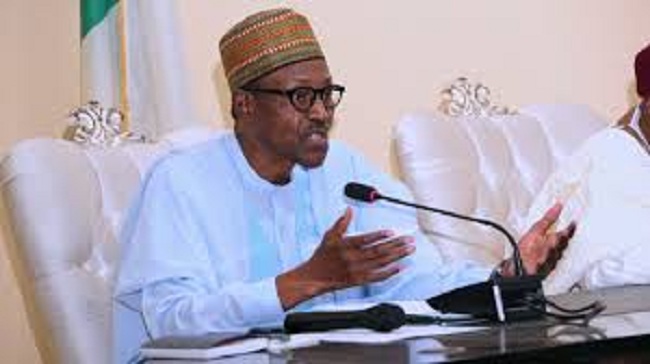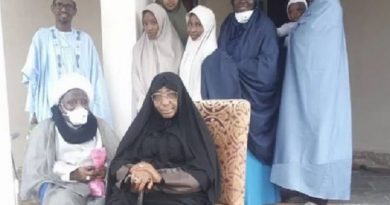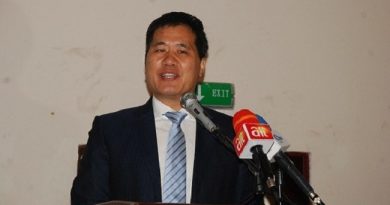Analysts Back Buhari’s Call For Home Grown Solutions To Nigeria’s Challenges
The call by President Muhammadu Buhari yesterday, that both public and private sector leaders should look inward in proffering solutions to the unique challenges confronting the country’s socio-economic development has been endorsed by some analysts.
They agreed with the president that most of the social-economic challenges in the country cannot be solved by external bodies, stressing the need for home-grown policies to address Nigeria’s peculiar challenges.
Buhari had tasked business leaders to look inward in proffering solutions to the country’s unique challenges.
He spoke at the opening of the 25th Nigerian Economic Summit (NES25), themed: “Nigeria 2050: Shifting Gears,
” where the Minister of Finance, Budget and National Planning, Mrs. Zainab Ahmed, said in order to seize advantage of the population growth, the country would require targeted reforms, tough decisions as well as a radical shift in the current culture, particularly attitudes towards taxes and public finance to fix the economy.
Buhari said his administration would continue to collaborate with the private sector in designing and implementing developmental projects that will keep Nigeria on track for sustained, inclusive and prosperity-driven growth.
Buhari, who made his first appearance at the annual summit, having been often represented by Vice President Yemi Osinbajo, also noted that the successful conclusion of 2019 general election and the resort by aggrieved candidates to seek redress in the courts rather than the street was proof that the country’s ‘‘democracy is maturing.’’
By this, he said Nigeria has demonstrated to the world that it is capable of electing leaders in a peaceful and orderly manner.
He said: “The elections have come and gone. Our country, once again, has shown the world that we can choose our leaders in a peaceful and orderly manner.
‘‘Apart from a few pockets of unrest, majority of voters exercised their civic rights without hindrance. Furthermore, we also saw an increase in the number of aggrieved candidates, and supporters, who took their concerns and grievances to the courts as opposed to the streets.
This is how it should be. Ladies and Gentlemen, what this clearly shows is that our democracy is maturing.”
The president assured his audience that his administration was determined to equip citizens with the means to seize any opportunities that may arise from the anticipated population growth to about 400 million by 2050.
To this end, he said the government would sustain investments in education, healthcare, infrastructure, security, strengthen and entrench the rule of law.
Buhari further bemoaned the concentration of wealth in the hands of a few individuals at the expense of ordinary Nigerians, adding that the development had contributed to the current insecurity bedevilling the country.
“A significant proportion of Nigeria’s prosperity today is concentrated in the hands of a few people living primarily in four or five states and the FCT,” he said, adding that some of the most prosperous Nigerians were present at the event.
“This leaves the remaining 31 states with close to 150 million people in a state of expectancy and hope for better opportunity to thrive.
This, in the most basic form, drives the migratory and security trends we are seeing today both in Nigeria and across the region,” he said.
The president said going forward, policies and programmes must focus on promoting inclusivity and collective prosperity.
‘‘In recent weeks, I have been to Niger Republic to attend the ECOWAS summit; Japan with fellow African leaders to attend the Tokyo International Conference on African Development; the United Nations General Assembly in New York; and South Africa on a state visit to exchange ideas on the common themes we share as the two largest economies in Africa.
‘‘What was very clear at these meetings, and numerous others I have been privileged to attend over the years is the increased consensus by leaders that to address population growth, security and corruption matters in developing economies, our policies and programmes must focus on promoting inclusivity and collective prosperity,” he said.
Buhari added: ‘‘This shift implies that the concept of having competitive free markets that focus on wealth creation alone will be replaced by those that propagate the creation of inclusive markets which provide citizens with opportunities that will lead to peaceful and prosperous lives.’’
Stakeholders Back Buhari on the Need to Look Inwards
Meanwhile, analysts, who spoke THISDAY last night agreed with the president’s position.
The President, Chartered Institute of Bankers of Nigeria (CIBN), Dr. Uche Olowu, said what the president meant was the need to design integrated policies that would address socio-economic challenges confronting the country.
He said: “These socio-economic crises include social unrest as a result of the lack of job creation, poverty and all that. So, who is going to do that for you?
Of course, you don’t expect any other person than concerted efforts, united in one voice, in making sure that we develop policies that would address all those challenges.
“Look at population growth. It is a threat and at the same time an opportunity. So, are you saying we should wait for somebody from outside to address the challenge of population growth for us?
“So, I buy into the president’s vision on that because it is very easy to know that it is only Nigerians that can solve Nigeria’s challenges.”
The Head of Research at Agusto & Co, a Pan-African credit rating agency, Mr. Jimi Ogbobine, who welcome the president’s position, however, pointed out that the world had gone global.
According to him, the advent of the internet has shown that the world is more connected than is thought of.
“So, while we are looking inwards, we must also be prepared to compete globally, if not we might miss out of global opportunities,” he said, adding: “We must understand global trends, global dynamics and we must be globally competitive.”
An economist and Chief Executive, Global Analytics Company, Mr. Tope Fasua, said though it was a laudable move by the president, a lot still needed to be done towards actualising the target.
He told THISDAY:” I believe the theme of the summit is too far into the future. Horizons have become shorter. Next week is short term. Next month is medium-term.
Next year is long term. And if you want to project into the deep future, five years may see the world vastly different from how it is today. In 15 years time, human beings may be able to fly to anywhere they want with electronic wings.
“Crazy things will happen. A theme that projects 31 years hence may, therefore, be escapist. Or unrealistic. I hope they give a breakdown of how the different long terms will roll into 2050, which is ages away going by the speed of today’s thinking.”
He said he agreed with the president that economists needed to look inwards but contended that as the leader, the president should take the lead.
“Already we have lost ground vastly. Our definition of development is such that we borrow from abroad, bring technology and labour from abroad and expect foreigners to innovate everything we need,” he said, adding: “Foreign investors will never develop this country. Without responsible governance and a deep resolve to lock down and activate our youth, the private sector’s effort will range between feeble to nothing.”
Targeted Reforms, Tough Decisions Needed to Fix Economy, Says Ahmed
Meanwhile, in her opening remarks, the Minister of Finance, Budget and National Planning, Ahmed, said in order to seize advantage of population growth, the country would require targeted reforms, tough decisions as well as a radical shift in the current culture, particularly attitudes towards taxes and public finance.
“Just as the saying goes ‘no pain no gain’- I must say, the journey will be painstakingly tough and will require sacrifices on all sides, including government, the private sector, citizens and other stakeholders, she said.”
The minister noted that the future required huge financial investments on multi-faceted physical and social areas by both the federal, state and local governments to be able to provide quality, useful, accessible and affordable




